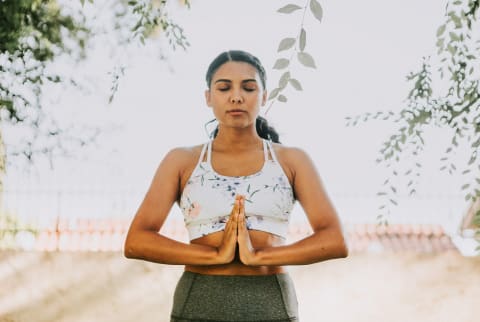Advertisement
Feeling Low-Energy? Try Strengthening Your Breathing Muscles


Fatigue is your worst enemy as an athlete—pro or amateur. It's not lack of heart motivation or "not wanting it bad enough." It's a question of running out of energy, of not being able to catch your breath. You don't pay attention to your breathing when you are just walking around; however, you have no choice but to notice it when things go wrong. You've been there. You're in the thick of things, and you're breathing as hard as you can, and it feels as if you just can't get enough air. Then doubt creeps in. You try to shake it off, but soon you cross that line from no longer playing to win to just praying to make it through with your dignity intact.
While most people turn to cardio, the answer to running out of energy is actually strengthening your breathing muscles.
Breathing muscles are the energy reserves you didn't know you had.
Scientific studies have shown that respiratory muscle training has indubitably led to better performance. Often, the heavy, can't-catch-your-breath tired feeling has to do with the very breathing muscles fatiguing. "Perceived fatigue" is the sensation of being tired but one that is fleeting; often, it leaves you angry as you look back and see you just needed a few seconds to recover.
You may ask if breathing was, well, "just breathing," wouldn't you be able to do breathing exercises indefinitely? Actually, breathing muscle exercises can make you sweat and cramp, and you might feel exhausted (which means your muscles have been overloaded, as needed for growth). The result: an almost immediate change in your endurance when you run, swim, or just recover between sets.
But what are breathing muscles?
Imagine 600 big water cooler bottles lined up. All in all, you're talking about your breathing muscles working to move 3,000 gallons of air (or 11,000 liters) in and out of your body every day.
You have about 10 pounds of breathing muscles just languishing, that is to say, not being trained functionally. You are not training these muscles when you do cardio. Your lungs are burning on that obstacle course, but are you "training" them? Nope. The notion that you are working your breathing muscles when training couldn't be further from the truth.
Why? To work out a muscle, you have to push it to exhaustion, and to do this you, have to train breathing muscles separately from your sport. If you don't work on your inspiratory and expiratory breathing muscles separately, you are running on three cylinders. By overlooking breathing, you are unknowingly sleeping on a mattress full of money.
When your breathing muscles are strong, you can breathe easier and exercise longer at harder levels of effort, and the experience feels easier. The burn or heaviness in your arms and legs will happen later in the game. You might even bounce back faster from tough, all-out efforts. Neglecting these muscles is like going to the gym, passing by all the weights, and spending the whole time doing forearm curls.